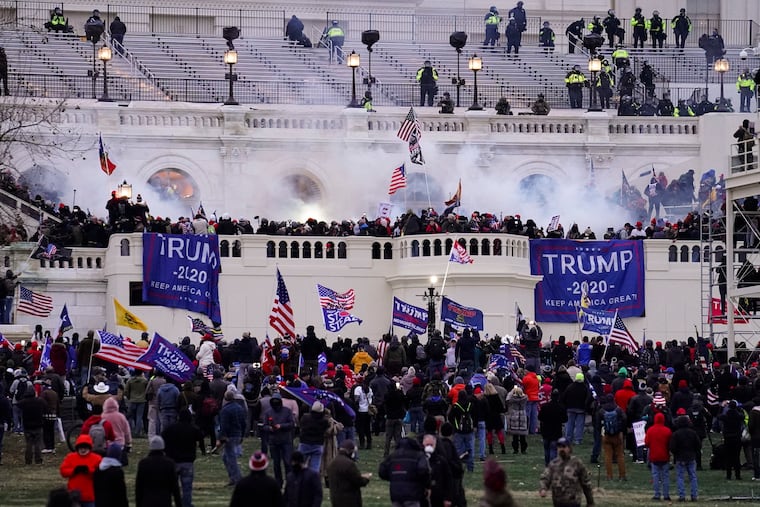Corporate action on insurrection could encourage Philadelphia and Pa. reforms on ethics | Editorial
In Philadelphia, lobbying and gift rules have improved in recent years, but they’re still maddeningly inconsistent and full of loopholes.

There are few silver linings to come from the Jan. 6 insurrection in Washington, D.C. Here’s one: According to a survey by the Washington Post, 20 of the 30 largest corporate PAC donors to the 147 Republican lawmakers who voted against certifying the presidential election results have decided to slash their political donations. Some have suspended donations just to those 147 officials, while others have cut off political donations entirely.
This large-scale corporate action cracks open a door that should lead to much needed gift and ethics reforms, all the way down to the local level in Philadelphia. In an ideal world, it would be a positive first step in clawing back the disastrous effects of the Supreme Court’s 2010 Citizens United decision, which transformed campaign finance for the worse.
Profligate political spending isn’t just bad for democracy; it’s bad for business. Some of those corporations that cut off their political donations were relieved to have an excuse not to spend that money on lobbying, and instead put it toward their business bottom line. Unfortunately the pressures to spend money on politicians is felt not just by major corporations, but by mom-and-pop businesses and small nonprofits who don’t have change to spare.
In Philadelphia, lobbying and gift rules have improved in recent years, but they’re still maddeningly inconsistent and full of loopholes. For example, according to a 2016 executive order from Mayor Jim Kenney, administration officials are not allowed to accept any gifts from individuals or lobbyists seeking official action from the city. This clarified rules set forth in an earlier executive order from Mayor Nutter. The problem is, executive orders are subject to the whims of the executive — as Donald Trump saw last week — and the next mayor could decide to do away with Kenney’s rules. Second, the executive order doesn’t apply to the legislative branch, whose employees — i.e., City Council members and staffers — are subject only to the city’s looser ordinance, which permits gifts worth up to $99. For a business trying to behave ethically, the regulations are confusing and inscrutable.
The situation is even worse at the state level, where it’s still legal to buy plenty of influence. Lawmakers of both parties have pushed for a gift ban in Harrisburg for years, including earnest efforts in 2019 and 2020. But despite good-government bills garnering bipartisan support in the Legislature and from the governor, those bills were never brought to a vote on the House or Senate floor.
Cutting off Washington legislators who defied their constitutional duty was an unusual act of corporate bravery. President Biden’s stated commitment to honesty and transparency provides a model for Philadelphia and Pennsylvania lawmakers to follow, and both City Council and the Legislature are crying out for someone who will lead on ethics reform. The last year has shown us what happens when people lose trust in their government and other institutions. A renewed commitment to clear, consistent and uniform ethics rules can go a long way to repair that damage.